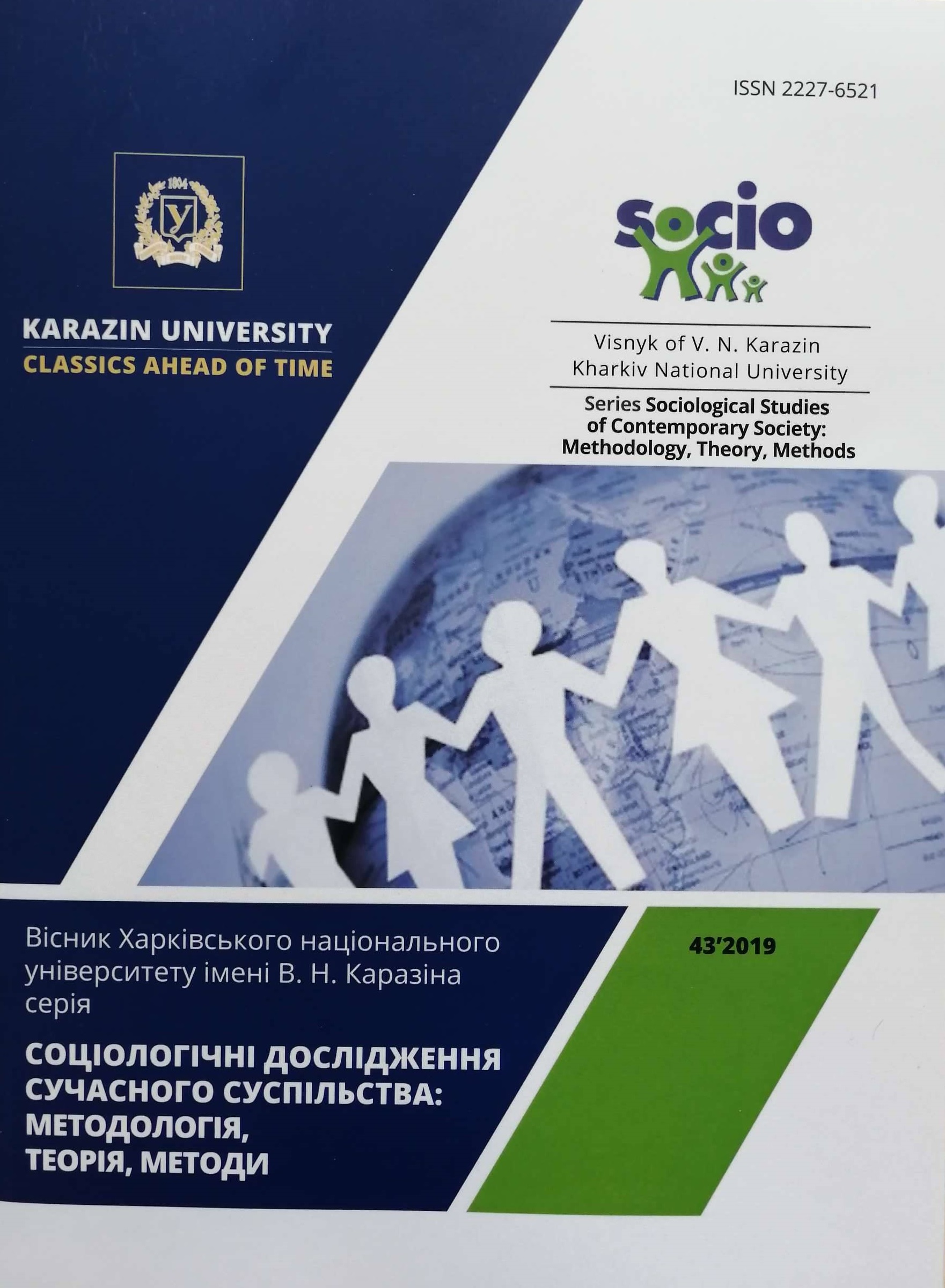Controversies in Tolcott Parsons' Justification of Functionalist Style of Sociological Thinking
Abstract
The article focuses on identifying contradictions of functionalist oriented sociological thought, which accumulates various tendencies that determine the ways and styles of sociological theorizing. In particular, an analysis of the link between the life and creative biography of Tolcott Parsons as one of the founders of structural functionalism, their influence on the way and style of his sociological thinking. From the point of view of the authors of the article, T. Parsons' autobiography suggests that the liberal way of thinking was natural to the American scientist. It is this method that has found its adequate reflection in his scientific work and determined the thinking style of one of the most prominent representatives of structural functionalism. It is emphasized that, in response to the accusations of violating the "balance between succession and opportunism" in his "intellectual history", T. Parsons raised questions that did not resolve this contradiction but significantly exacerbated it. Similar situations are classified by a number of intellectuals as schizophrenic in the culture of late capitalism. But they have their logic, based on the rules of which theorists offer different ways of getting out of contradictory social situations that provide temporary success, while creating the effect of their delayed exacerbation. It is emphasized that in the works of T. Parsons the contradiction between “social” and “societal” is realized but not resolved, where “societal” requires development and “social” requires order. It is proved that the functionalist style of sociological thinking creates the illusion of the possibility of its solution by the method of undeclared refusal to develop in the name of order, which, in turn, leads to a radical rejection of the principle of rationalism.
Downloads
References
Бауман З. Мыслить социологически / пер. с англ. под ред. А. Ф. Филиппова. Москва: Аспект Пресс, 1996. 256 с. URL: http://padaread.com/?book=72471&pg=257
Гавриленко І. М., Недюха М. П., Яковенко Ю.І. Соціальний розвиток: навчальний посібник. 2-е вид, перероб. доп. Херсон: ОЛДІ-ПЛЮС, 2017. 580 с.
Джеймисон Ф. Постмодернизм, или Культурная логика позднего капитализма / пер. с англ. Д. Кралечкина; под науч ред. А. Олейникова. М.: Издательство Института Гайдара, 2019. 808 с.
Кант Э. Критика эстетической способности суждения. Соч. в 6 т., т. 5. М., 1966. С. 201-249.
Кравченко А. И. Особенности стиля мышления и критика учения Парсонса. История социологии в 2-томах. Tом. 2. М., 2014. URL: https://studme.org/56413/sotsiologiya/istoriya_sotsiologii_tom_2.
Мегедь В. В. Стили мышления и типы URL: http://ru.laser.ru/authors/meged_ovcharov/styles_and_types.htm.
Миллс Ч. Р. Социологическое воображение / пер. с англ. О. А. Оберемко; общ. ред. Г. С. Батыгина. М.: Издательский Дом NOTA BENE, 2001. 264 с. URL: http://klex.ru/l6u
Николаенко В. Л., Николаенко Л., Яковенко Ю. И. Коммуникативные эффекты пустого слова: паралогические основания социологической постметодологии. Український соціологічний журнал. Випуск 17–18. № 1–2. 2017. С. 192-205.
Парсонс Т. О структуре социального действия. М.: Академический Проект, 2000. 880 с.
Парсонс Т. Система современных обществ / пер. с англ. Л. А. Седова, А. Д. Ковалева; под ред. М.С. Ковалевой. М.: Аспект Пресс, 1998.270 с.
Ритцер Дж. Современные социологические теории. 5-е изд. / пер. с англ. А. Бойков, А. Лисицына. СПб: Питер., 2002. 668 с.
Руднев В. П. Философия языка и семиотика безумия: избранные работы. М.: Территория будущего, 2007. 528 с.
Штомпка П. Теоретическая социология и социологическое воображение. Социологический журнал. 2001. № 1. C. 148-159. URL: http://socioline.ru/_seminar/library/src-ino/voobr.php
Ярошенко А. О. Курс лекцій з історії соціології. К.: НПУ імені М.П. Драгоманова, 2005. 195 с.





